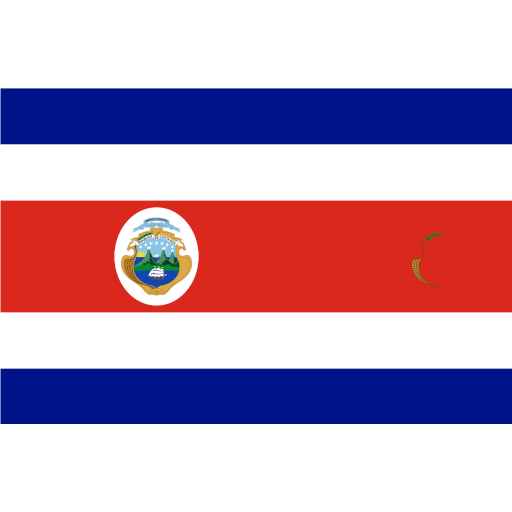Regulations on Child Labor in Costa Rica
Child labor in Costa Rica is strictly regulated by the Code of Children and Adolescents to protect the well-being of minors.
¿ What is adolescent work?
Adolescent work refers to activities carried out by people between 15 and 17 years old and is subject to certain restrictions.
Working adolescents have the right to receive the minimum wage, be covered by social security, and enjoy vacations and bonuses.
Workday for Teenagers
- The working day of adolescents between 15 and 17 years old is classified as a special ordinary day.
- Maximum of 6 hours per day and 36 hours per week. (Art.95: Working day).
Night Working Restrictions
- Night working is prohibited for teenagers.
- Exception: They can only work mixed shifts (including night hours) if the change does not exceed 10 pm. (Art.95: Working day).
Dangerous or Unhealthy Work
- Work in activities that are dangerous, unhealthy, or that put their physical, mental, and emotional development at risk is prohibited. (Law 7739, Law 8922, and Decree No. 29220-MTSS - Ministry of Labor and Social Security).
- Work that interferes with regular attendance at the educational center is also restricted. (Art. 87: Work and education).
Firings
- Firings with employer responsibility must be notified by the Ministry of Labor within the notice period. (Art.90 Code of Children and Adolescents).
- The Ministry of Labor must previously authorize the dismissal of a teenage worker for cause through a procedure for approving the dismissal of a teenage worker.
Training Activities
- They are activities that promote or stimulate the physical, mental, spiritual, moral, or social development of the minor without interfering with their school, recreational, or rest activities.
- These promote the acquisition of skills and attitudes necessary for the future as members of a society, which is why they are an essential part of the socialization and development process. They allow us to assume responsibilities and take pride in our achievements.
Characteristics of Training Activities:
- Appropriate to the age and maturity of the minor.
- They should not replace the responsibilities of adults.
- Entertainment activities that promote development.
- They must not endanger the integral development of the minor.
- They must not interfere with attendance at the educational center or with recreation.
These regulations ensure that minors can develop their potential in a safe and educational environment, avoiding situations of labor exploitation.
Link: http://www.pgrweb.go.cr/scij/Busqueda/Normativa/Normas/nrm_texto_completo.aspx?
http://www.pgrweb.go.cr/scij/Busqueda/Normativa/Normas/nrm_articulo.aspx?
http://www.pgrweb.go.cr/scij/Busqueda/Normativa/Normas/nrm_texto_completo.aspx?
http://www.pgrweb.go.cr/scij/Busqueda/Normativa/normas/nrm_articulo.aspx?
Consequences of Reporting a Work Risk Accident Lately
Every employer has the double obligation to insure its workers against occupational risks before the National Insurance Institute as its acronym in Spanish – (INS) and to notify any accident or occupational illness within a maximum period of 8 business days from when the event occurs. ¡ Meeting this deadline is essential!
¿What happens if the notice is late?
If the company reports late:
- INS will handle the case but could charge the company for complications resulting from late care.
- The employer is exposed to a fine for non-compliance.
If the worker reports late:
- The INS will attend to the case but could reconsider whether the incident should be treated as an occupational hazard.
Recommendation for companies:
- Establish clear policies for workers to report any work-related accident or illness immediately.
- Ensure that internal procedures are adequate to meet the INS notification deadline.
Link: https://www.grupoins.com/rt-virtual/reporte-de-aviso-de-accidente-yo-enfermedad-laboral/
New Guideline for the Prevention and Addressing of HIV/AIDS in the World of Work
The Ministry of Labor and Social Security (MTSS) has issued Directive No. DUG-MTSS-CSO-DE-1-2025, published in La Gaceta No. 32 on February 18, 2025, with immediate application for the public and private sectors. This directive guarantees the protection of the labor rights of people with HIV/AIDS.
Key Aspects
- Ban on HIV Testing
- HIV testing cannot be required during the hiring process or employment.
Confidentiality
- The serological status of the worker must be kept strictly confidential.
Non-Discrimination and Job Stability
- Dismissal based on health conditions is prohibited in compliance with the Labor Code.
Training and Prevention
- Companies must foster inclusive work environments, providing information for HIV prevention and eliminating stigma.
Obligations for Employers
- Review and update internal policies and regulations.
- Implement training programs on HIV/AIDS.
- Include activities to promote healthy lifestyles in corporate social responsibility plans.
This guideline complements the provisions established in the General HIV Law (2022), consolidating the protection of the rights of people with HIV in the workplace.
Link: https://cso.hermes-soft.com/legislacion/recomendaciones_directrices_del_cso/
Expansion of Maternity Leave Rights in Homoparental Families
The Constitutional Chamber has issued resolution No. 92412-2024, which expands maternity leave rights for homoparental families with co-parenting, guaranteeing equality and family protection in Costa Rica.
Key Aspects
Inclusion of the Non-Pregnant Mother
- Non-pregnant mothers in homoparental families may access paternity leave.
Applicable Regulations
- The interpretation of Article 95, subsection b) of the Labor Code is expanded.
- The omission of these rights in Article 41 of the Public Employment Framework Law is declared unconstitutional.
Principle of Equity
- The measure guarantees equal rights for all families, protecting the child's best interests.
Implications for employers
- Adjust internal policies to comply with the new interpretation.
- Provide the leave benefit to the non-pregnant mother when appropriate.
This resolution strengthens the legal framework for family protection and promotes inclusion in the Costa Rican workplace.
Link: https://nexuspj.poder-judicial.go.cr/document/sen-1-0007-1224708
The content of this newsletter is merely informative, that´s why it cannot be used under any circumstances as advice on the matter described in it. If you need advice on any of the aspects discussed, our team of professionals will be willing to assist you. contacto@jadelrio.com



















